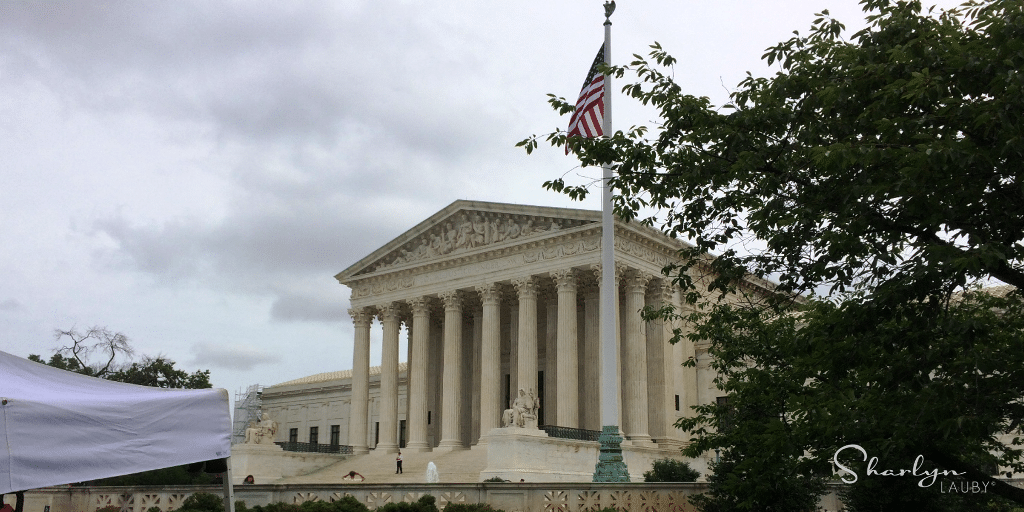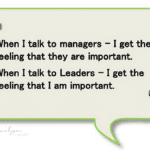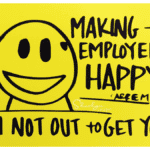Last week, I wrote a post about when employees need to lawyer up or reach out to a government agency about something that’s happening at work. It occurred to me while I was writing the post that companies might want the same type of information.
I’ve worked at organizations that never called an employment lawyer because frankly, they didn’t want the expense. That often cost them more than if they would have paid for an hour of advice. On the flip side, I’ve worked places where we called an attorney for everything, which probably wasn’t absolutely necessary.
So I reached out to a couple of labor and employment attorneys to get their take on when organizations should consider engaging with an employment lawyer. Kate Bischoff is an employment attorney and HR Consultant at k8bisch, LLC. She’s helped us before with reader questions. One of my favorites is “HR Failed to Investigate an Incident”.
Here’s what she had to say:
“Apart from when the government comes knocking or you receive a lawsuit, there are three times when you should turn to a lawyer:
- When your tummy says, ‘something isn’t quite right’. It’s a tough termination, you’re not sure if all the Family and Medical Leave Act (FMLA) paperwork was just right, the employee in question is popular but in trouble, you got a strange call from a government agency. If you’ve ever heard an employment attorney at a seminar, you’ve seen us try to instill a sense of uneasiness in your belly. I call this Spidey sense. When your Spidey sense goes off – no matter what the scenario – give us a call.
- When you’re going to try something ‘new’. Let’s say you’re going to try a new piece of HR tech (a new applicant tracking system (ATS) or using an analytic tool), change your structure (try your hand at holocracy), or roll out a new policy (parental or sick leave), make your employment lawyer buy you lunch. Your lawyer may flag some issues with the new proposal and give you some needed guidance that will reduce some risk (or even maybe make the roll out easier). We should even pay.
- When you need to do an investigation or audit. If you have to look under the hood of your own practices or a complaint has been lodged, call us. We’re trained to test compliance and investigate potential wrongdoing. We also have some magic fairy dust called attorney-client privilege that can shield our work from government agencies and maybe even courts later. We can help find, remedy, and then protect your business.”
Heather Bussing is an employment lawyer and regular contributor at HR Examiner. She’s also helped us before here on the blog. I really like this post about “Why Job References are Important”. Bussing reminds us the role attorneys can play in our business.
“To ask the question is to answer it. If you even vaguely wonder if you should be talking to legal, please do. A good employment attorney can help you think through possible outcomes, clarify what makes sense for both the organization and the employee, and help you come up with the right strategy to handle the issue.
The goal is always to prevent problems rather than clean them up.
But understand that attorneys’ first instinct will usually be to reduce risk. That’s why, when you ask a lawyer if you can or should do something, the answer is often ‘no’. So, when you go to legal, and please go to legal, ask for their suggestions on how to handle it, what the options are, and the risks and benefits of each approach.
Then use your experience, judgment, and the great advice you just helped your attorney give you.”
A huge thanks to Heather and Kate for sharing their knowledge with us. As a human resources professional, I’ve worked with my fair share of attorneys. They are smart and always there to help us run our businesses well. But we can only take advantage of their knowledge and experience if we call them.
Image captured by Sharlyn Lauby after speaking at the 2016 SHRM Annual Conference in Washington, DC
5










Braden Bills says
It’s pretty messed up that some people can just choose not to hire you. It’s important to get a lawyer if you think this has happened to you! That way you don’t have to worry about not getting a job for something trivial.
Jack B says
Excellent information, thanks for sharing it. One of those that I never thought about was hiring someone in the case of using something “new”. I can see scenarios, and we’ve had them occur, where using some new tech caused some serious issues. It’d be good to have our butts covered for next time!
Tyler Meredith says
I like that you mention how you will often get a feeling when you need to call an employment lawyer. It makes sense that when your gut instinct thinks there’s something wrong with something like the paperwork, there might be. This is something for anyone to keep in mind because simply having an employment attorney to call could be a very easy way to get any potential problems worked out before they become serious whether you’re an employer or an employee.
John says
In California especially employment lawsuits are rampant. On the plaintiff side of things, cases are typically handled on contingency. There is very little risk for employees to bring a claim against a company.
That is why its important for any company with the financial means to have an employer defense attorney on retainer. If that is not economically feasible they should at the very least have solid policies and procedures created by a professional employment law attorney.
FargioneThomas, LLC says
This was a good read! Many thanks for sharing some useful legal info on this article. I’m looking to read more blogs from you.
Amanda Drew says
That sounds like a good idea to talk to an employment lawyer when your company is going to be changing up a policy so that he or she can let you know if there’s anything wrong with the proposal. It’s important that a business has good policies and is fair to their employees because then the workers are happier and more likely to stay with the company. It would probably be a good idea to have an employment attorney on call just in case your business decides to change things up a bit.